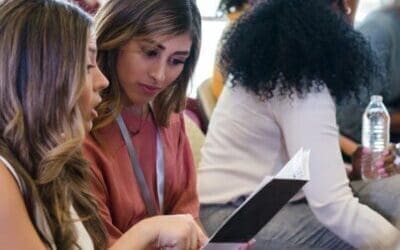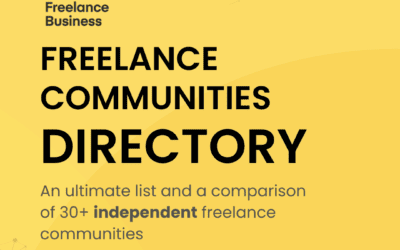Decentralised organisations already exist. But building something outside of blockchain technology that still can be decentralised sounds like a crazy utopian idea. As crazy as it may sound, there are people and organisations that are already working on creating such a country on the internet.
Last October, we welcomed Sondre Rasch from SafetyWing at the Freelance Business Month to share why and how he approached the idea to create a country on the internet, Plumia. You can watch his 10-minute presentation here or read our summary below.
Sondre Rasch is a co-founder & CEO of SafetyWing and host of the Building Remotely podcast, a guide for building and scaling a remote company. Sondre’s educational background is in economics and computer science. Previously he was a policy advisor for the Government of Norway, working on their social safety net. He was also the co-founder of SuperSide (YC W16), a platform for freelance designers.
SafetyWing is a fully remote team building a global social safety net. Their mission is to create a country on the internet, removing the barrier of geographical borders to create equal opportunities and freedom for everyone.
Due to Sondre’s background in economics, his work with the Norwegian government and his experience as a freelancer, he came to a conclusion that freelancers are missing proper social protections, especially if they are travelling extensively and living a digital nomad lifestyle.
He started looking for a solution, and didn’t find any. ‘None has made a product we needed, so we started developing it ourselves.” SafetyWing as a company was born with the intention to build the Global Safety Net (SafetyWing offers two products: Nomad Insurance for freelancers and Remote Health solution for individuals and freelance platforms) and subsequently to build a country on internet.
What do we know about a country in general, and what are the characteristics of a modern country?
Today, a country’s responsibilities are to maintain borders, protect its sovereignty and solve common shared problems. More than 50% of a country’s budget is dedicated to a citizens’ safety net, an essential service that a country provide to its citizens. So why, then, there is a need to build yet another country? As you may guess, not all countries are providing good service and not all freelance citizens feel social protected. A country on the internet could solve this problem.
A country on internet will not have borders, but will have membership. It may even be recognised by other countries, and it will definitely solve some common shared problems for its citizens.
SafetyWing’s approach, says Sondre, is not so much revolutionary. In this project, they are working with the existing order, interacting with existing laws and institutions. The first steps have already been taken: for example, nomad visas were one of Sonde’s ideas and projects, which he shared during the WebSummit. The first nomad visa was introduced in Barbados in June 2020 and since then there are more than 50 countries that have implemented a nomad visa today.
Why make a country on the internet?
Countries and the way they provide their services, such as pensions, health insurance, etc., were constructed before the computer age, and it is time for them to revolutionise.
”Geographical boarders are obsolete”, says Sondre. It doesn’t matter any more where you are located and where your customers are. However, registration as a freelancer or business owner is still linked to a geographical location, as if that is crucial. The infrastructure to support this new labour market doesn’t work, and hasn’t been updated in years.
When freelancers are hired by a company, they are not able to enjoy the social safety that the company provides to their employees, as this would misclassify them. This demonstrates how the modern infrastructure is obsolete and unpractical. And the reason that this is happening is that the internet had removed borders, but governments didn’t develop a way to operate fully in the online world.
Another reason why a country on internet is a good idea is the need for a community. People want to have a tribe, but don’t have one if their essential needs are not met. Such communities are not built yet and this is a great opportunity to create one.
Together with the development of new technologies, opportunities are coming up to construct better countries (and communities). This means better services for their citizens: insurance, pensions, etc.
Competition in citizenship will be good for people. If people are able to choose which country they want to pay taxes to, improvements will start happening. In some countries, social services are non-existent or very bad quality. Citizens pay taxes, but get nothing back. Equal opportunity has come to the internet for income, but not for the social safety net. An equal opportunity for all to choose a country will also contribute to freedom for everyone.
You can watch the entire presentation on our YouTube channel.
Image: The winner (Anna Somewhere) of the AI contest to create an image of a country on the internet.




